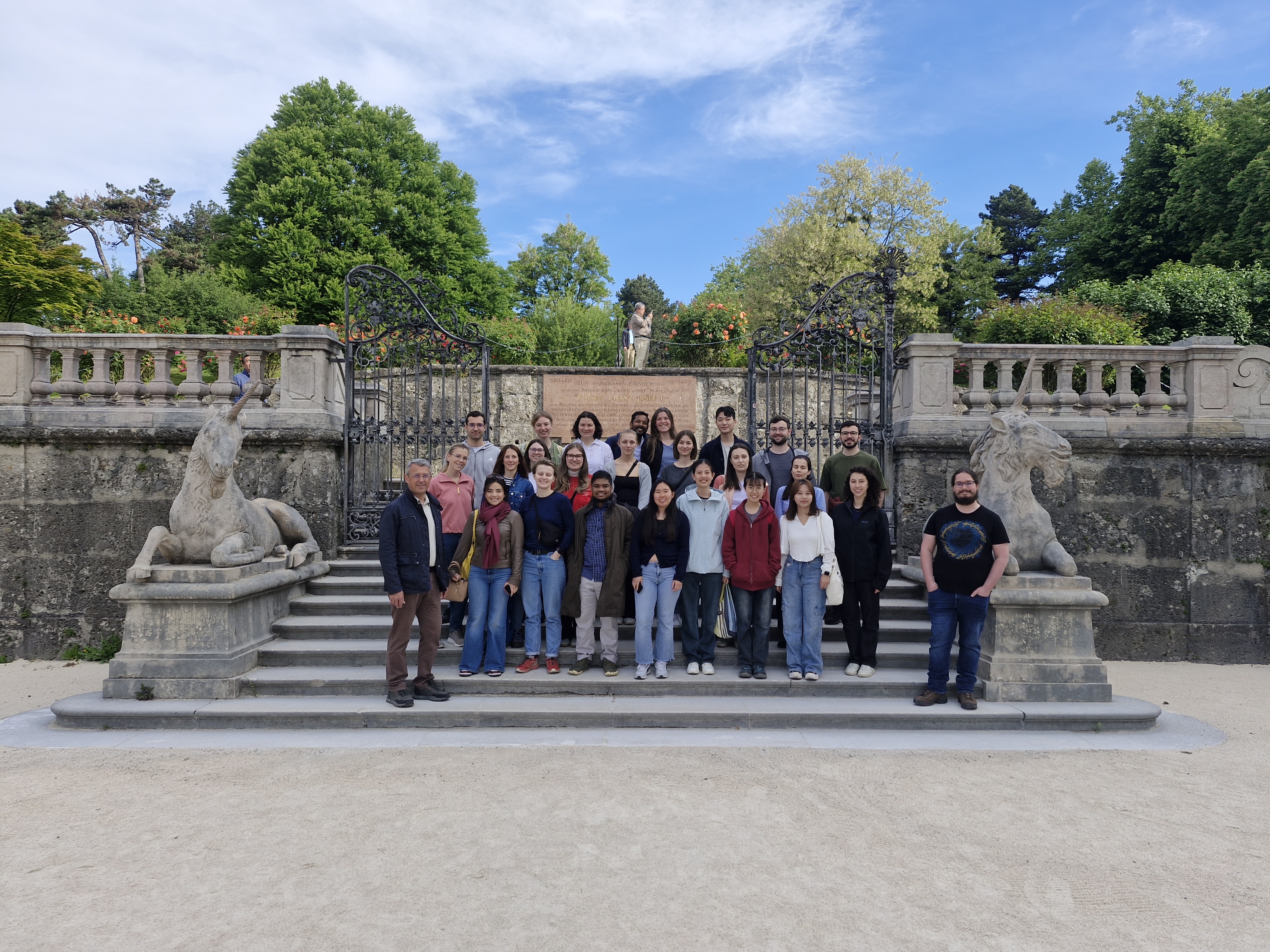The goal of the excursion was to deepen the course content. With a group of 20 Bachelor’s and Master’s students, the trip led to Austria at the end of May to visit various companies along the wood-based value chain. The focus was on sustainable forest management by a forestry enterprise, guided tours of companies in the sawmill, pulp, and paper industries, a biorefinery, a timber construction company, and other wood-processing businesses. Core themes included the implementation of sustainability measures and the integration of circular economy practices into operational processes. Students also gained valuable insights into energy management, production workflows, and strategic approaches for promoting resilience and future viability within companies. Thanks to centrally located accommodations in Salzburg and free time in the evenings, students had the opportunity to explore the historic city center in beautiful weather. A guided city tour focusing on Mozart’s birthplace rounded off the cultural program of the excursion.
The excursion started punctually with a bus departure from the TUM Campus in Straubing to the first destination: Lenzing Papier GmbH in Upper Austria. We were given a fascinating tour of the wastepaper facility of this company, founded in 1892, which is now a market leader in the recycled paper industry in Austria. Lenzing Papier specializes in high-quality paper products made largely from recycled materials. The product range includes offset printing papers, high-speed inkjet papers, white graphic paper, envelopes, as well as white and brown kraft papers for packaging such as cartons or flexible materials.
Next, we continued to the Steyrermühl sawmill in Laakirchen. Until 2024, the sawmill belonged to the Finnish UPM company but was then acquired by the Austrian Heinzel Group, a leading European manufacturer of pulp, paper, and packaging materials. The sawmill is part of a larger industrial complex operated by the Heinzel Group. Under new ownership, the site is undergoing a profound transformation. What began as a center for newspaper printing is now evolving into an integrated hub for sustainable wood processing, packaging paper production, and renewable energy generation. The goal of the acquisition and transformation of the Steyrermühl site is to integrate multiple processes (wood breakdown, energy production, and paper manufacturing) into a unified and interconnected industrial system. This stop focused on the initial stage of wood processing, giving us insights into each processing step at the sawmill.
After an exciting first day, we arrived at our accommodation in Salzburg, where the students explored the city center on foot in excellent weather. The next morning began with a guided tour of Salzburg’s historic old town, which formed the cultural part of the excursion.
Afterward, we traveled to Meiberger Holzbau GmbH in Lofer, located in the Pinzgau Valley. This company specializes in building houses from solid wood, CLT (cross laminated timber), wood fibre insulation and wood-based panels. Its portfolio includes single-family homes, tiny houses, and duplexes for private clients. Meiberger also has experience in the public construction sector, having completed projects such as schools, kindergartens, refugee accommodations, dormitories, and pedestrian bridges. The company also offers extensions to existing buildings, for example through vertical expansion. Here too, in-depth discussions were held on sustainability criteria, particularly the role of wood in construction during times of climate change.
From Meiberger Holzbau GmbH, we continued to FRITZ EGGER GmbH & Co in St. Johann in Tirol. This visit provided insights into how sustainability, circularity, innovation, and quality can be successfully combined. The company presented its closed-loop production cycles, energy self-sufficient processes, and continuous expansion of renewable energy. EGGER is a B2B company positioned midstream in the value chain and supplies the processing industry with wood-based materials. Its product range includes decorative boards, furniture parts, laminate flooring, as well as OSB, MDF, and chipboards for furniture, interior construction, and building companies.
On the third and final day of the excursion, we visited AustroCel in Hallein in the morning. This modern biorefinery processes approximately one million cubic meters of spruce wood residues annually. The company produces high-quality viscose pulp for the textile industry and utilizes nearly 100% of the raw material – a flagship project for circular economy. The tour included the wood intake area, a massive woodchip storage facility, and the cleaning and sorting processes. A particular highlight was the new bioethanol plant, where around 18,000 tons of sustainable biofuel are produced annually from pulp production residues and fed into Austria’s fuel market. AustroCel also generates renewable energy in the form of district heating and green electricity, supplying households in the region. Another innovative project is a hydrogel made from lignin, which is expected to be produced from 2025 and could be particularly relevant for the agricultural sector.
The final stop of the excursion was a visit to the Bavarian State Forests on the way back to Straubing. In the forests managed by the Wasserburg forestry district, we received practical insights from an experienced forest manager into forward-looking, resilient forest management. Topics included the selection of site-appropriate tree species, targeted management practices, and sustainable timber harvesting. One particularly impressive element was the discussion of necessary trade-offs and compromises in forestry to reconcile the forest's many functions – from timber production and biodiversity to recreation. This visit highlighted the complexity of modern forest management in times of climate change. A fascinating final program point that once again made clear where the wood-based value chain begins and forms the foundation for all downstream industries.
